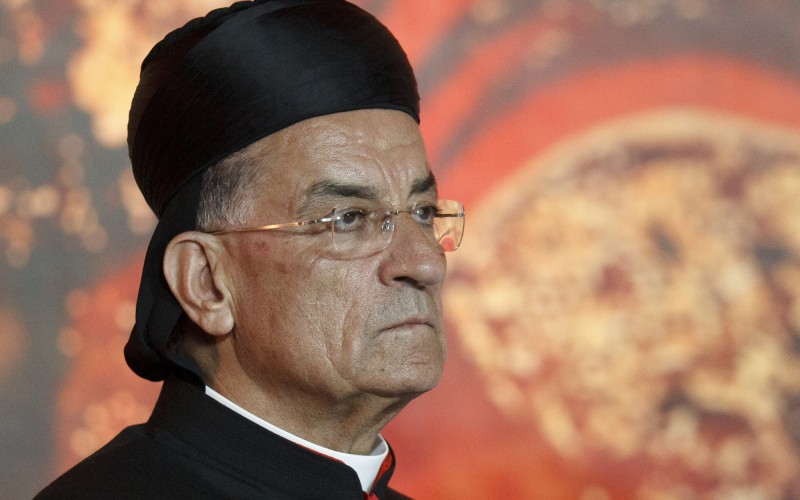Patriarch ‘will make plea for Lebanon’s independence during Saudi Arabia visit’
Cardinal Rai's visit comes amid tensions over the resignation of the Lebanese prime minister while in Saudi Arabia
Nov 14, 2017

BEIRUT: Catholic leaders in Lebanon have urged the international community to bring peace to the Middle East, amid the “state of deadlock” the country is in following the resignation of its prime minister.
The Catholic Council of the Patriarchs and Bishops of Lebanon said it was a message that Cardinal Bechara Rai, the Maronite patriarch, would carry to Saudi Arabia on his planned visit this week.
At the end of the November 6-10 session, the prelates said their pain “is the continuation of wars in the countries of the Middle East, particularly in Syria, Iraq, Palestine and Yemen, which have shaken the stability and peace and caused the programmed demolition and the ravages and misfortunes of innocent citizens.”
Their meeting followed the resignation of Lebanese Prime Minister Saad Hariri on November 4.
Before that announcement, Cardinal Rai was scheduled to visit Saudi Arabia at the invitation of King Salman.
It will be the first time a cardinal officially visits Saudi Arabia and the first visit of an Eastern patriarch to the kingdom since Greek Orthodox Patriarch Elias IV of Antioch in 1975.
In their statement, the Lebanese Church officials said Cardinal Rai’s visit was “an occasion to demand that Lebanon be removed from regional conflicts” as well as “to support the independence, sovereignty and stability of Lebanon” and for Lebanon to “remain in this eastern region as the land of cultural and religious pluralism and dialogue between Christianity and Islam.”
Amid “the state of deadlock” in Lebanon following the resignation of its prime minister, the prelates said they were concerned that he had not yet returned to Lebanon, stressing that this was “necessary for the sake of dignity, sovereignty and stability.”
They said they valued the wisdom of Lebanese President Michel Aoun, “who has called for prudence and internal unity, and is still engaged in extensive consultations on this issue.”
Under Lebanon’s power-sharing system, its president is a Maronite Catholic, the prime minister a Sunni Muslim and the speaker of the House a Shiite Muslim.
While commending the Lebanese for “social solidarity” with refugees, nearly all of whom are Syrian, the prelates said the refugees’ presence – now more than half of Lebanon’s existing population of about 4 million – “has become a burden and a threat to its structure, economy and population balance and to its political and security stability.”--Catholic Herald







Total Comments:0